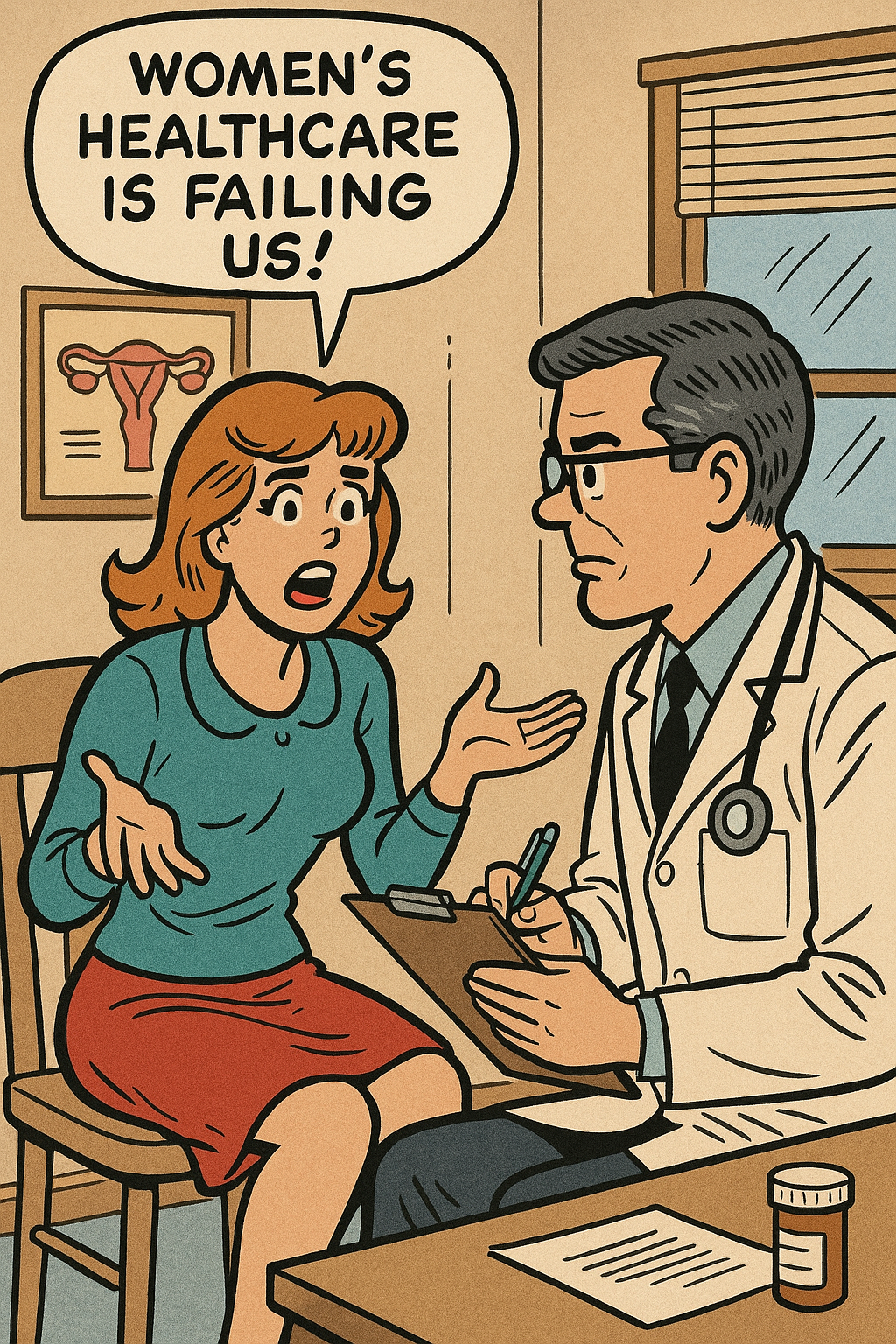
The Crisis We Don’t Talk About Enough: Women’s Healthcare is Failing Us
Share
In America, women's healthcare continues to be overlooked, underfunded, and dangerously dismissed. The system that’s supposed to protect and support us routinely tells us our suffering is "normal" or "in our heads." And it’s not just frustrating—it’s fatal.
I’ve experienced this firsthand through my own battle with Premenstrual Dysphoric Disorder (PMDD)—a debilitating condition that impacts my mood, my body, and my ability to function every single month. It took years to even hear the term PMDD, let alone find a doctor who would take it seriously. It wasn’t "just PMS." It wasn’t me being dramatic. But time and time again, I was told to take a deep breath, go for a walk, or try birth control. No real answers. No deeper questions.
And then there's my mother. She’s currently fighting ovarian cancer, which—like so many other gynecological diseases—was diagnosed far too late. Ovarian cancer is often called the "silent killer" because its symptoms are vague and easily dismissed: bloating, fatigue, frequent urination. It’s not that the signs aren’t there—it’s that our healthcare system isn’t looking for them. Or worse, it’s trained to ignore them when women report them.
It’s not just us.
It's the mom silently drowning in postpartum depression but afraid to ask for help because she might be labeled “unstable.”
It’s the teenager suffering from endometriosis, told for years that her pain is just “bad cramps.”
It’s the woman in the ER with a heart attack, sent home with anxiety meds because she didn’t fit the male-centric symptoms in the textbook.
There is a pattern here. Women’s pain is minimized. Our voices are muted. Our bodies are mysteries not worth solving—until it’s too late. The history of medicine was built around male bodies, and the ripple effects are killing us slowly.
This isn’t just about bias. It’s about funding. It's about education. It’s about legislation. It’s about the fact that women's health research makes up a shockingly small portion of medical research funding in this country. It’s about a system that won’t change until we demand it to.
But we can change the narrative—starting here in Arizona.
Five Ways We Can Help Change the Narrative in Arizona:
-
Elect Leaders Who Prioritize Women’s Health
Support candidates—at all levels—who advocate for increased funding for women’s health research, accessible mental health care, reproductive rights, and equitable healthcare systems. -
Demand Comprehensive Health Education
Push for policies that require schools to teach in-depth, inclusive, science-based health education that includes PMDD, endometriosis, reproductive health, and mental wellness. -
Fund Local Clinics and Services
Donate to or volunteer with community health centers like Planned Parenthood, El Rio Health, or other providers offering women’s health services regardless of income. -
Normalize the Conversation
Talk about your pain. Share your story. Use your platforms—online or in-person—to help break the stigma around women's health, especially when it comes to mental illness, menstruation, and reproductive disease. -
Hold the Medical System Accountable
File complaints when mistreated. Leave reviews. Support training initiatives for healthcare providers to better understand and empathize with women’s experiences. Advocate for patient-centered care in your local hospitals and clinics.
It’s time to stop treating women’s pain like an afterthought.
We are not overreacting.
We are not too emotional.
We are not imagining things.
We are demanding to be heard, believed, and cared for.
We can demand a system that finally shows up for us. Because we deserve better—and we can’t afford to wait.
